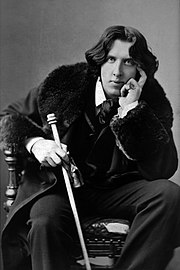Oscar Wilde's Human Design Chart
2/4 Sacral Manifesting Generator**Oscar Wilde: A Manifesting Generator of Wit and Wisdom**
Oscar Wilde, born on October 16, 1854, in Dublin, Ireland, was an Irish-British writer, poet, and dramatist renowned for his sharp wit and flamboyant style. As a Manifesting Generator in Human Design, Wilde embodied a unique blend of creativity and responsiveness, allowing him to engage deeply with the world around him. His Inner Authority, the Sacral, guided him to respond to life’s opportunities, leading to his remarkable career in literature and journalism.
At the height of his career, Wilde faced a scandal that would change the course of his life. Accused of a homosexual affair, he brought a libel suit against his accuser in 1895 but ultimately lost. This led to a two-year imprisonment for what was deemed a “crime,” echoing the struggles of his father, who had faced similar legal challenges in Dublin years earlier. Wilde’s personal life was tumultuous; his marriage to Constance Lloyd in 1884 appeared idyllic until the couple had children, after which Wilde’s feelings for his wife soured, revealing the complexities of his emotional landscape.
Wilde’s creative genius flourished in his early years, particularly after leaving Oxford in 1878. His passion for journalism was evident as he edited “The Lady’s World,” which he transformed into “The Woman’s World,” establishing a blueprint for future women’s magazines that balanced frivolity with earnestness. His 2/4 Profile in Human Design reflects his dual nature—an innate ability to connect with others while also seeking solitude for introspection and creativity.
In December 1881, Wilde embarked on a successful American lecture tour, showcasing his quick wit and charm. This experience highlighted his ability to respond to the audience’s energy, a hallmark of his Manifesting Generator type. However, his return to Paris revealed that his humor did not resonate as strongly with the culturally astute Parisians, leading to a period of struggle.
Wilde’s literary legacy includes iconic works such as “The Picture of Dorian Gray” and a series of celebrated comedies, including “The Importance of Being Earnest.” His writing often reflected the themes of duality and identity, resonating with the complexities of his own life. The Right Angle Cross of Maya in his Incarnation Cross suggests a life path centered on the exploration of illusion and truth, themes that permeated his works.
Despite his literary success, Wilde’s personal life was marked by tumultuous relationships, including his passionate yet doomed affair with Lord Alfred Douglas. These experiences ultimately culminated in his imprisonment and a subsequent decline in health. On November 30, 1900, Wilde passed away in Paris, leaving behind a rich legacy of literature that continues to inspire and provoke thought.
Oscar Wilde’s life story is a testament to the power of creativity, resilience, and the pursuit of truth, embodying the essence of a Manifesting Generator whose wit and wisdom remain timeless.
Discover More Famous People
Browse and analyze over 55,000 public figures and celebrities.
Ra Uru Hu
5/1 Manifestor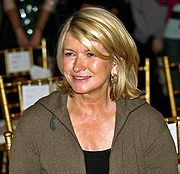
Martha Stewart
4/6 Manifestor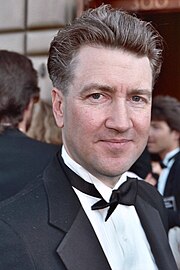
David Lynch
4/6 Generator
Barack Obama
6/2 Projector
Steve Jobs
6/3 Generator
Vladimir Putin
5/1 Manifestor
Kim Kardashian
3/5 Generator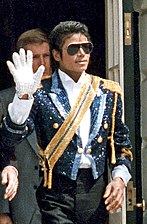
Michael Jackson
1/3 Projector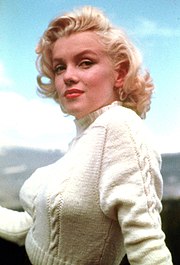
Marilyn Monroe
6/2 Projector
Ariana Grande
2/4 Projector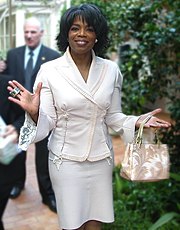
Oprah Winfrey
2/4 Generator
Johnny Depp
2/4 ManifestorWhat is HumanDesign.ai and how does it work?
Curious what makes Oscar Wilde tick? HumanDesign.ai instantly maps their exact birth data into a fully interactive clickable bodygraph chart, letting you hover or tap every center, channel, and gate for plain-language explanations. Bella, the platform’s built-in AI guide, adds context in real time, translating complex mechanics into everyday insights so you can see how Oscar Wilde’s strengths, challenges, and life themes play out on-screen.
The same tools are waiting for you. Generate your own Human Design Chart in seconds, open a library of 2000+ suggested questions, and chat with Bella as often as you like to decode your design, daily transits, and even relationship dynamics.
Want to compare energies? Save unlimited charts for friends, family, or clients, then ask Bella to reveal compatibilities, composite patterns, or coaching tips, all in one conversation thread.
Start free with core features, or unlock our Personal and Pro plans for deeper dives: unlimited Q&A, celebrity chart search spanning 55,000+ public figures, white-label PDF reports, branded content generation, and a professional profile with built-in booking for practitioners. Whether you’re exploring your own potential or guiding others, HumanDesign.ai delivers an ever-expanding toolbox of AI-powered insights—no spreadsheets, no jargon, just clarity at your fingertips.
Ready to see yours? Signup for FREE today!

